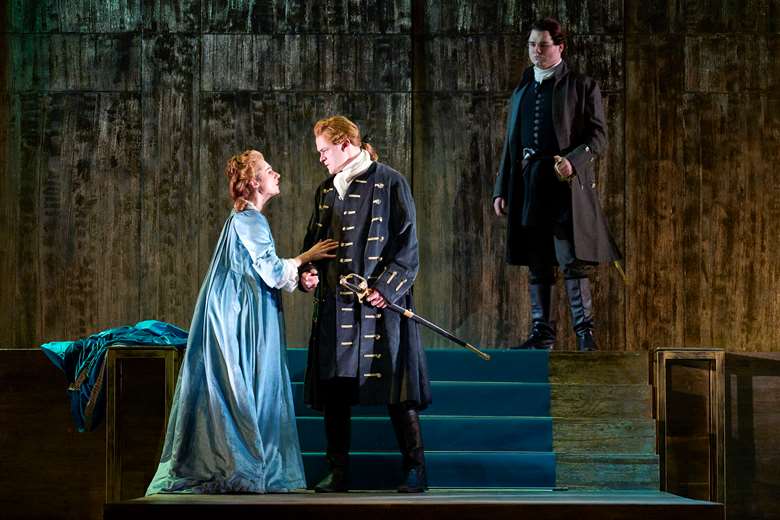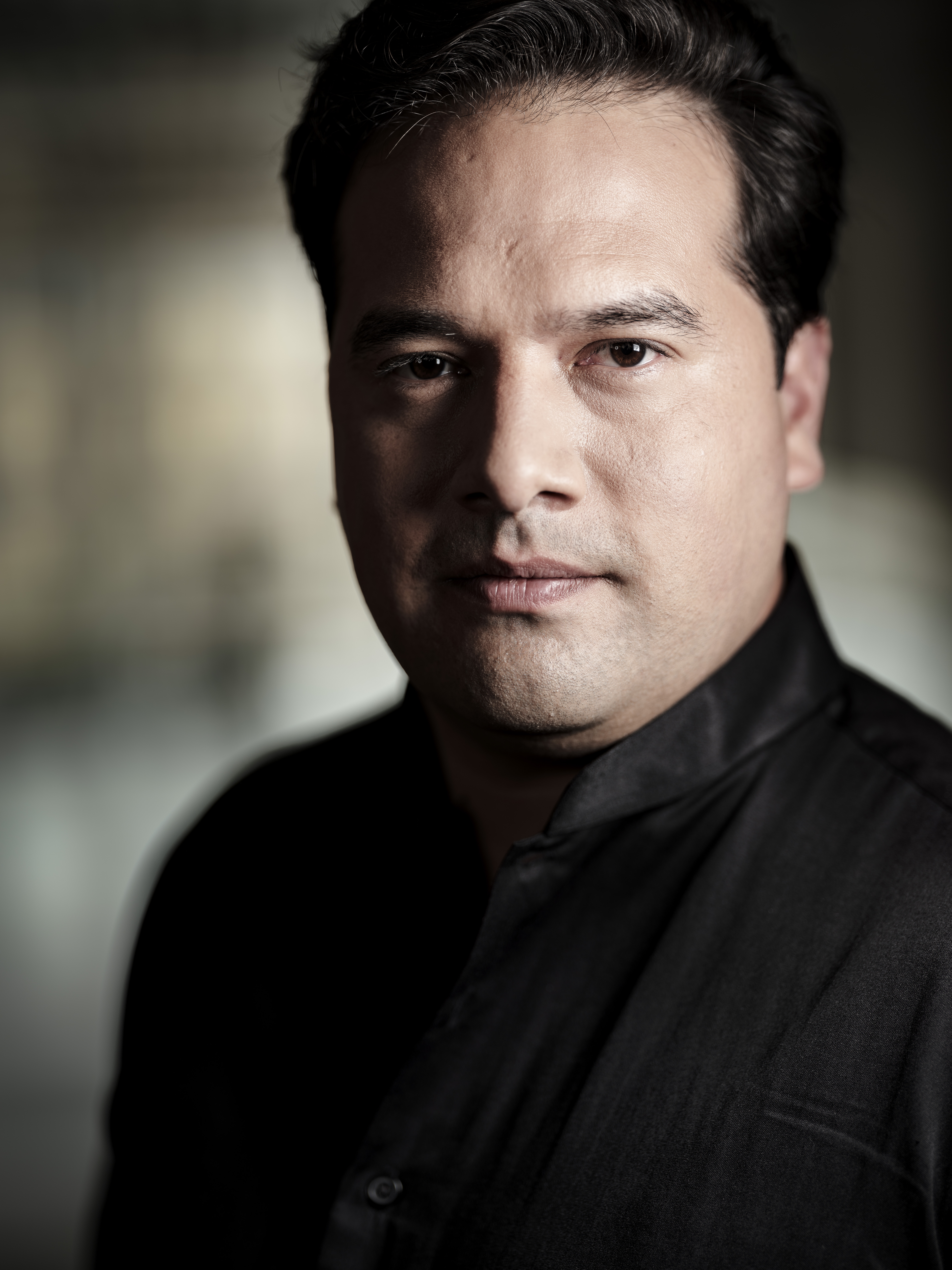‘Opera is in a strange place at the moment: ETO's Robin Norton-Hale
Simon Mundy
Tuesday, March 14, 2023
As English Touring Opera's spring tour gets underway, Simon Mundy catches up with chief executive Robin Norton-Hale to get her perspective on the future of the company – and the artform as a whole – as she approaches the end of her first year in the role

For Robin Norton-Hale taking over as chief executive of English Touring Opera (ETO) is something of a homecoming. It was where she started twenty years ago. ‘My relationship goes back to my first proper job in 2003, when I joined as the press and marketing officer for four years. I found it fascinating: the huge variety of the audiences. I found they really connected with the company and felt a sense of ownership, even if we were only in their town for a week or two each year.’
 Robin Norton-Hale's new role with ETO feels like coming home ©Matt Jones
Robin Norton-Hale's new role with ETO feels like coming home ©Matt Jones
While generating audiences and handling the demands of journalists was a useful training ground, Robin soon found the on-stage pull of opera irresistible. ‘While I was there, I found I wanted to direct and I was given my first chance when I was allowed to be the assistant for a revival of Ariodante at Buxton Opera House. I was hooked. Eventually, I became a freelance director for fringe opera companies and in 2009 I founded Opera Up Close (OPUC) – doing La Bohème above a pub in a room that had 35 seats. We grew over the 13 years, with shows at places like the Soho Theatre and The King's Head in Islington and from 2015 OPUC has been a proper touring company.
‘We went,’ and OPUC still does go, ‘to places where the pit is too small so that we re-orchestrate for a piano plus two or three instruments who would always be on stage – so we could go to places that full-scale companies couldn't. That does not mean they are always pubs or tiny venues. There are a lot of towns with good theatres of 400-800 seats that cannot hold an orchestra but are still keen to have an opera programme.’ Even then, funding was always a major issue. ‘We had no regular funding from Arts Council England and the problem is that you can usually get a production funded from somewhere, but nobody wants to pay for the boring stuff – the backroom bits which are just as essential.’
I am always frustrated that when we fill in ACE forms, we have to tick just the 'music' box, when it should be also the 'theatre' and 'design' boxes.
Now that she has arrived back at ETO, she says there is much of the same ethos but on a much larger scale. ‘Just like OPUC it is there to fill in the gaps but by doing more than anyone else. The musical and design standards are very high.’ Norton-Hale is not exaggerating about the quality at all – and audiences clearly respond. I was at the opening night of the company's current tour, watching Handel's Giulio Cesare in the packed Edwardian splendour of the Hackney Empire. While ETO does not have its own orchestra, the period instrument group in the pit, The Old Street Band, played with immaculate Handelian style, conducted by Sergey Rybin. On stage there were some exceptional voices. Susanna Hurrell as Cleopatra sang with passion but also with an understanding of florid ornamentation that raised her second half arias to a state of regal agony. She was beautifully supported by Margo Arsene as Sesto, Edward Hawkins as Achilla and (among others) Alexander Chance – bravely following his great father, Michael, into the countertenor profession – as Tolomeo.
There is clearly an audience for opera wherever it is performed but ETO cannot avoid the controversy that surrounds the art form and that has been brought into sharp focus by recent Arts Council England decisions. ‘Opera is in a strange place at the moment,’ Robin says. ‘We're at the centre of a debate about how much money opera gets but people have to realise that the individual performers are not paid excessively, especially given the work that goes into preparing a part and the skills to deliver it. ETO is considered a mid-scale company, ENO or Opera North's little sibling, but even so in Rossini's il Viaggio a Reims (pictured below)we have 27 on stage and another 27 in the pit. By normal theatre standards that is huge. I am always frustrated that when we fill in ACE forms, we have to tick just the 'music' box, when it should be also the 'theatre' and 'design' boxes.
 ©Richard Hubert Smith
©Richard Hubert Smith
‘There's a misconception in official circles and much of the press about who opera serves. At ETO we clearly do not fit into that perception. Our average ticket price is less than £30 and our operas are being seen by communities that do not usually see them – not in substitute versions, not watered down. Opera is not a linear progression from pub room to the Royal Opera House. Just like the rest of theatre it is an ecosystem.’
Unlike the unfortunate Glyndebourne Touring Opera, ETO's grant from Arts Council England was increased in the latest round of measures. ‘Our sum is £2.13m, which is a 22% increase. That may sound like a lot but what it does is cover the huge increase in costs and allows us to fund our big learning and participation programmes alongside the full stage productions.’ Before the whole company comes to town, she is introducing small-scale events that might even take place in bookshops – like the poems she has commissioned to go with L'Incoronazione di Poppea this coming Autumn. Robin says this is not just a few outreach sessions aimed at unusual audience segments. It is about her belief that opera can and should be a lifelong interest and that it is never too early or too late to start. ETO has launched commissions for a trilogy of operas for 10- to 12-year-olds, as well as one for special needs audiences, and one even for the under twos. ‘That started as a digital idea but now it's going live. We find that really young children haven't learned the stereotypes. Their reaction is quite natural. For them it is very physical and visceral. Sometimes they just laugh!’